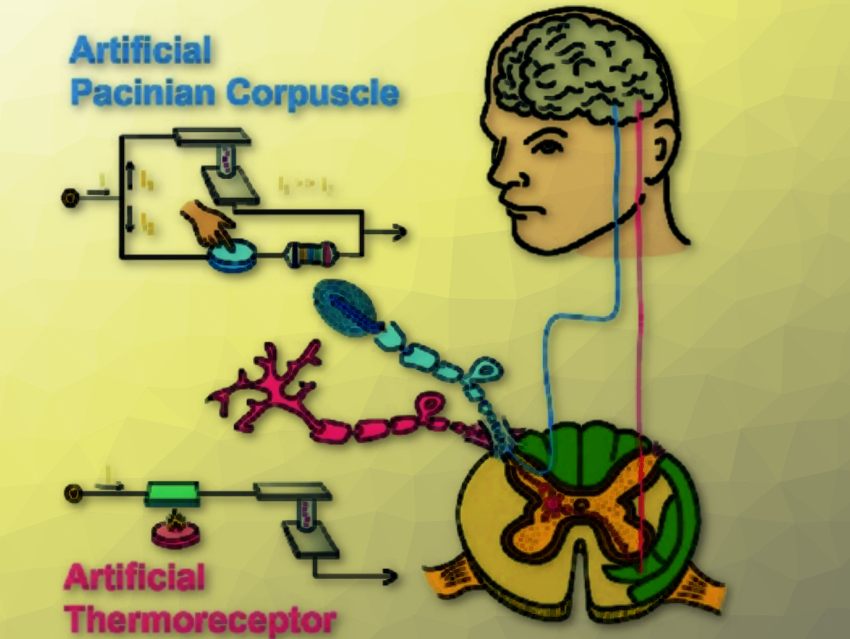The human skin is the largest sensory organ. It consists of complex sensors (somatosensors) that quickly recognize stimuli and send signals to the central nervous system to possibly trigger a motor response. Imitating this artificially is complex. There exist no somatosensor that responds to real stimuli of pain.
Md. Ataur Rahman, Madhu Bhaskaran, and Sharath Sriram, RMIT University, Melbourne, Australia, and colleagues have created three artificial skin receptors using integrated electronic systems that mimic the feedback response of somatosensors. The researchers have developed electronic artificial skin that reacts to pain, heat, and pressure, just like real skin. The device can react to painful sensations with the same speed that nerve signals travel to the brain.
The researchers combined three technologies they previously pioneered and patented:
- Stretchable electronics: combining oxide materials with biocompatible silicon to deliver transparent, unbreakable, and wearable electronics as thin as a sticker.
(a gold on stretchable elastomer (polydimethylsiloxane [PDMS])‐based pressure sensor) - Temperature-reactive coatings: self-modifying coatings 1,000 times thinner than a human hair based on a material that transforms in response to heat.
(a phase‐change oxide (vanadium oxide, VO2)‐based temperature trigger) - Brain-mimicking memory: electronic memory cells that imitate the way the brain uses long-term memory to recall and retain previous information.
(an oxygen‐deficient strontium titanate SrTiO3–x (STO)‐based decision‐making memristor)
The pressure sensor prototype combines stretchable electronics and long-term memory cells, the heat sensor brings together temperature-reactive coatings and memory, the pain sensor integrates all three technologies. According to the researchers, the artificial skin can differentiate between gently touching a pin with your finger or accidentally stabbing yourself with it. They say this is a critical distinction that has never been achieved before electronically.
- Artificial Somatosensors: Feedback receptors for electronic skins,
Md. Ataur Rahman, Sumeet Walia, Sumaiya Naznee, Mohammad Taha, Shruti Nirantar, Fahmida Rahman, Madhu Bhaskaran, Sharath Sriram,
Advanced Intelligent Systems 2020.
https://doi.org/10.1002/aisy.202000094




